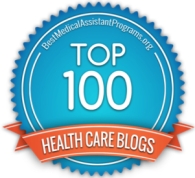Our third winning essay comes from Mya Roberson of the Gillings School of Public Health at the University of North Carolina at Chapel Hill :
My grandmother’s name was Ms. Gladys. In truth, I know very little about Ms. Gladys. I never got the chance to meet her because she passed away at an early age due to complications from diabetes and a healthcare system that did not have space for a poor Black woman. What I do know is that Ms. Gladys had 9 children, with my father being number 8. I also know that she spent the majority of her life working in cotton fields as a sharecropper in the south, like many Black people of her generation.
I think about Ms. Gladys fairly often, now especially as my educational ascension, currently being a doctoral student, puts me in a privileged minority. I think about how the institutions from which I received and will receive my degrees were built by people like Ms. Gladys, and intentionally meant to exclude people like her and her progeny.
Most frequently, I think about how by the time she was my age, Ms. Gladys had already had several children. At age 21, I had well over $100,000 worth of surgery to excise my endometriosis and preserve my ability to have any children, when the time is right for me. It is a humbling reminder of how far health care access and reproductive justice have come, but also how far we need to go so one does not need a college degree and technical vocabulary to receive the best health care. When I think about the amount of choice and access afforded to me and how that is impacted my life and career trajectory,
I often wonder:
What could Ms. Gladys have been? What would she have wanted to be?
In order to truly combat disparities in health outcomes, we must be willing to acknowledge and confront the historical systems of oppression that have lead to modern day inequities. We must be willing to grapple with the centuries long subjugation of entire populations of people. To ignore history in the context of health disparities is to be complicit. To achieve health equity over the next decade we must interrogate how the histories of the sharecroppers, migrant workers, and the formerly incarcerated perpetuate cycles of inequality.
To achieve such a bold goal, we need a healthcare workforce with the diversity of the communities we need to serve most. We need to foster the pipeline for people from rural areas, women, and racial/ethnic minorities to have an active role in public health and the healthcare system. With a diverse workforce, we need cross-disciplinary collaboration, with the basic scientists working alongside the epidemiologists, working alongside the clinicians, working alongside the policymakers.
When we achieve these things, no longer will entire populations be restricted by their health status or access to quality health care. When we achieve these things, the descendants of people like Ms. Gladys can truly be anything that they want to be, and that is the world I strive to live in.

